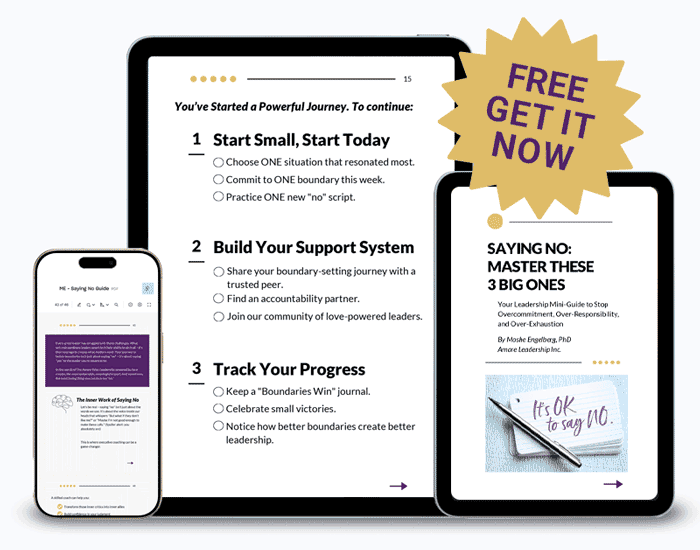What Must Come Before Accountability
“It’s still not working,” the president I was coaching lamented. “We need to hold our people more accountable.” Accountability is a common “go-to” for leaders–and it makes sense as a path to organizational improvement. Yet it’s not the right starting point.
My experience over three decades of consulting and coaching is that before we can effectively hold people accountable, we must first hold them to be “able.” This isn’t just about skills or resources; it’s about fostering an environment of trust where individuals feel empowered to reach their potential.
Make accountability a shared journey, not a solitary responsibility. That way, when you hold someone accountable, you’re essentially saying, “I believe in you, and I know you can do this.” What a message!
- How frequently do you assess capability before setting expectations?
- How are you actively ensuring that your team feels able and empowered?
- Is your approach to accountability rooted in trust and a genuine belief in your team’s potential?
- Will you “let go” so they can shine without you?
7 Amare Steps to Hold People Able and Accountable
1. Build Capability. Audit current skills, then organize workshops that focus on closing gaps with skill-building and personal growth development. By investing in capability, you’re laying the foundation of trust and effective accountability.
2. Check for Blind Spots. Go to a quiet space and ask yourself what might happen if you hold your people able. Dive into what you would have to let go of, and possible payoffs you currently derive from not fully holding them able.
3. Insist on Transparent Communications. Embrace open dialogue, so team members are aware of expectations and feel trusted to meet them. Say out loud that you trust them and hold them able. Then, show it with your actions.
4. Foster a Trusting Environment. Create a workspace where mistakes are seen as learning opportunities, reinforcing the essence of Amare leadership–uplifting and connecting.
5. Celebrate Capability. Regularly acknowledge moments when team members have showcased their abilities, reinforcing your trust in their potential. And treat mistakes as learning opportunities, with appropriate consequences.
6. Practice Continuous Feedback. Keep building trust and accountability by having clear expectations and regular check-ins connecting behaviors to business outcomes. This keeps you connected and aware of each individual’s journey.
7. Lead with the Amare Spirit. Embody the principles of love, connection, and understanding. Show genuine concern for your team’s well-being and growth, solidifying the trust they have in your leadership.
True accountability in business isn’t just about assigning responsibility or assessing performance; it’s also an affirmation of your confidence in an individual’s or team’s potential.
By first holding people able, you set the stage for a professional relationship anchored in trust, mutual respect, and shared growth objectives. It’s a transition from capability to responsibility to accountability, and the authentic path of Amare love-powered leaders.
Today’s Amare Wave Wednesday Quote
“The best way to find out if you can trust somebody is to trust them.”
—Ernest Hemingway
Click here and read more Amare Wave Wednesday newsletters on related topics:
Stop Avoiding Conflict: 7 Ways Effective Leaders Have Courageous Conversations
How the Best Leaders Stay Open-Hearted Under Pressure
How You Treat People Makes the “Golden Rule” Your Most Powerful Leadership Tool
5 Steps to Get Your Team Solidly on Board When You Need to Make A Really Big Investment Decision

